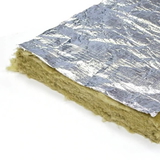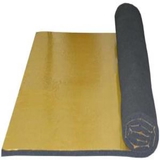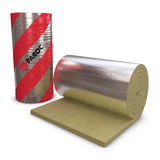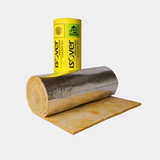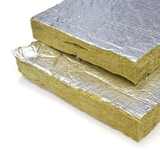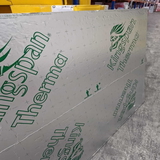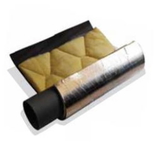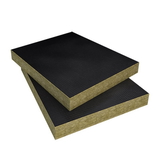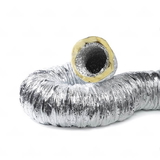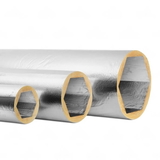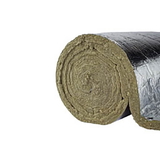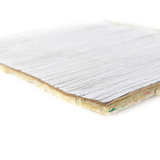- Blogs
- Benefits of duct insulation
Benefits of duct insulation

A building's duct system should be insulated to limit and manage heat loss. Ductwork, if you're new to the world of HVAC systems, is a system of pipes and ducts that helps circulate warm or cool air throughout different areas of your house or office.
Your indoors are maintained at the desired temperature by HVAC (Heating, Ventilation and Air Conditioning) systems. With effective, high-quality duct insulation in place, HVAC systems can easily maintain the required airflow temperature throughout the structure.
Duct insulation is usually installed on the outer side of your rectangular or round metal ducts. You may insulate around each air duct to save ten to thirty per cent on energy expenditures while boosting indoor comfort.
In this blog, we will discuss duct insulation. We'll look at the importance of insulating ducts, the benefits as well as the types of insulating materials usually employed.
Why is duct insulation important?

Without insulation, ducts may not be able to maintain the air passing through the duct system at the proper temperature. Warm air may leak or be lost, leading to higher energy usage and as a result, higher energy bills every year.
When the ductwork is properly installed and insulated, it will help save money on utility costs, contribute to a cleaner atmosphere, plus minimise leaks, heat loss and condensation issues.
Duct insulation significantly impacts the energy consumption of both buildings and businesses. Therefore, it is critical to ensure that efficient duct insulation is installed in both industrial and commercial properties.
What are the benefits of duct insulation?
1. Thermal insulation
As the air in the ducts flows throughout the building, it goes through numerous levels, which may include places where there is no heating or cooling, causing an unwelcome temperature spike or drop.
When cold air begins to heat up or hot air begins to cool down while travelling from the unit to its destination, quality duct insulation helps avoid energy loss. It aids in maintaining indoor comfort without wasting energy on reheating or cooling the air.
2. Acoustic insulation
Ducts serve as a sound transmission route, allowing noise to travel from one room to another. The operational sound of the ductwork can be quite noisy, which may be an issue if the property is being used to entertain visitors, as a workplace or for other purposes.
Proper duct insulation can effectively decrease the level of sound that passes through the ducts. It helps reduce the operational sound of the ductwork.
3. Saves energy and helps make the building more energy-efficient
Duct systems account for approximately 30 - 40 per cent of the energy expenditure of your building. Duct insulation is therefore critical to avoid heat loss in ducts for both financial and environmental reasons.
In larger, modern buildings like apartment complexes, hospitals, sports centres etc., where a good amount of energy is required, HVAC systems must be designed to maximise comfort. Adequate duct insulation, along with modernised HVAC systems, in such places reduces energy consumption, resulting in more cost-effective and environmentally sustainable structures.
4. Duct insulation helps prevent condensation problems
Condensation is a common occurrence around ductworks, especially in the summer. You will notice droplets accumulating on the air ducts as the temperatures and humidity increase. It takes extra hard work for your air conditioner to keep your house cool enough to make it comfortable. Adequate duct insulation can help prevent condensation easily.
5. Duct insulation helps prevent duct sweating
Sweating in and around your ductwork can be reduced using fibreglass and other insulating materials. Also wrapping insulation materials too tightly around the ducts does not always have positive effects. It will interfere with the system's normal operations. Insulation around the duct needs to be wrapped perfectly - not too tight and not too loose.
Types of insulation material used for duct insulation
Fibreglass and stone wool insulation is quite commonly used for ductwork insulation. Fibreglass insulation is available in a variety of R-values, in both flexible and rigid forms.
Fibreglass insulation:
- It helps to regulate temperature levels.
- It has acoustic properties. It effectively controls and absorbs noise from the air conditioning system.
- It keeps duct condensation at bay.
- It contributes to lower energy consumption.
Stone wool insulation
- Provides resilience to fire
- It maintains the right air temperature inside the ducts.
- It has excellent soundproofing and thermal qualities.
Both fibreglass and stone wool insulation provide excellent thermal and acoustic insulation to your building’s duct system.
In conclusion
It's possible to save hundreds of pounds each year by insulating your ducts properly. Your ducts will last longer and your building will be more energy efficient.
If you are an accomplished DIYer, you can install insulation in your ductwork yourself, but if you are not, we recommend seeking professional help to insulate your ductwork.
If you are looking for high-quality duct insulation, visit www.buyinsulationonline.co.uk. We offer the best-grade duct wrap and duct slabs from the UK's top brands like Isover, Knauf and Rockwool at highly competitive prices.
Additionally, we also offer a wide range of loft insulation, cavity wall insulation, and pipe insulation products, among others, at the lowest possible prices in the UK. Visit us today and sign up for our newsletter to get 5% off on your first order.

Samuel Hitch
Managing Director
Buy Insulation Online.
Leave A Reply
Your feedback is greatly appreciated, please comment on our content below. Your email address will not be published. Required fields are marked *












